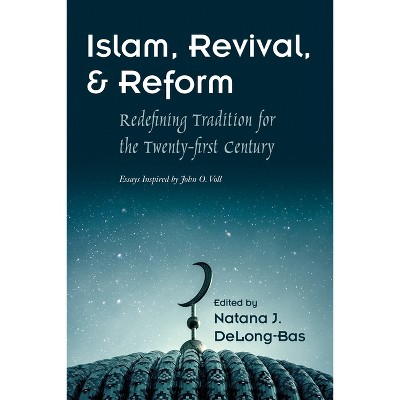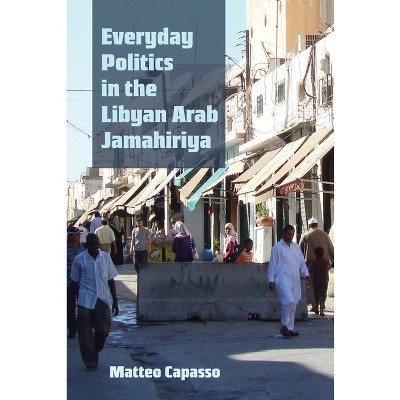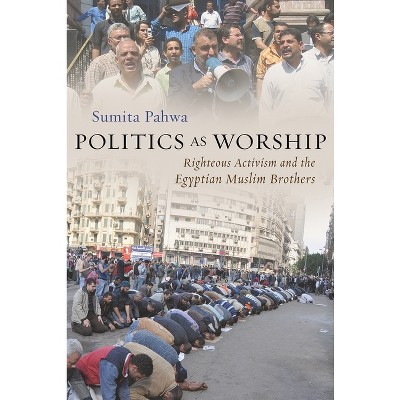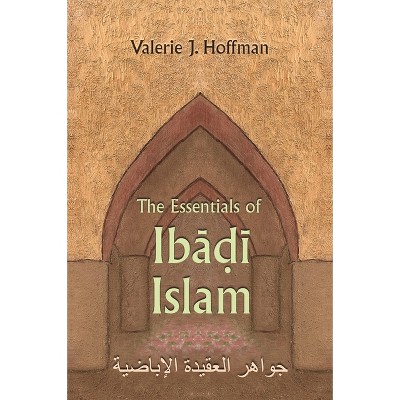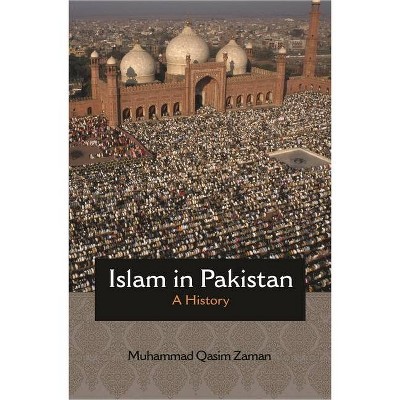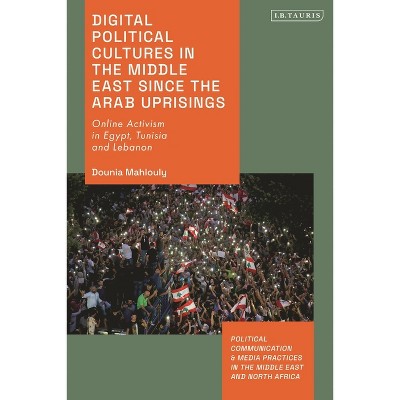Islam, Orientalism and Intellectual History Modernity and the Politics of Exclusion Since Ibn Khaldun - (Library of Middle East History) (Paperback)

$34.95 when purchased online
Target Online store #3991
About this item
Highlights
- Debates on the relationship between Islam and the West rage on, from talk of clashing civilizations to political pacification, from ethical and historical perspectives to distrust, xenophobia and fear.
- About the Author: Mohammad R. Salama is Assistant Professor of Arabic at San Francisco State University and specializes in modern Arabic literature, Arab colonial and postcolonial thought, intellectual history and Arab cultural studies.
- 288 Pages
- Political Science, International Relations
- Series Name: Library of Middle East History
Description
Book Synopsis
Debates on the relationship between Islam and the West rage on, from talk of clashing civilizations to political pacification, from ethical and historical perspectives to distrust, xenophobia and fear. Here Mohammad Salama argues that the events of 9/11 force us to engage ourselves fully, without preconditions, in understanding not just the history of Islam as a religion, but of Islam as a historical condition that has existed in relationship to the West since the seventh century. Salama compares the Arab-Islamic and European traditions of historical thought since the early modern period, focusing on the watershed moments that informed the two traditions' ideas of intellectual history and perceptions of one another. He draws attention to European intellectual history's entangled links with the Islamic philosophy of history, especially the complexities of orientalism and modernity. Recent critical reflections on the work of Ibn Khaldun confirm this intertwined and troubled relationship, reflecting major disparities and contradictions. At the same time, recent Arab writings on Europe's intellectual history reveal a struggle against erasure and intellectual superiority.Calling for a new understanding of the relationship between Islam and the West, Salama argues that Islam has played a major role in enabling and positioning various paths of Western historiography at crucial moments of its development, leaving palpable imprints on Islamic historiography in the process. He proposes an answer to a fundamental question: how to make sense of the mechanics of production in Arab-Islamic and Western historiographies, or how to identify the ways in which they have both failed to make sense of themselves and of each other in an increasingly disenchanted postnationalist world. Spanning an impressive array of recent writings on these themes as well as older foundational texts in both traditions - including al-Tabari, Ibn Khaldun, Hegel, al-Jabarti, Toynbee, Foucault, Edward Said, and Hourani - this book is both timely and crucial for all those interested in Islamic and Middle Eastern studies, Western and Islamic philosophies of history, modernity, and the relationship between Islam and the West.
Review Quotes
'An artfully written, colloquially vibrant work of demystifying scholarship. Salama has written the best study I know on the nagging misrecognition of Arabs and Muslims in the West by brilliantly re-thinking the much-maligned concepts of 'history' and 'modernity' across the East/West divide. At once a primer on Arabic intellectual traditions and an explosive and original re-reading of Ibn Khaldun and Hegel. Generous, hugely informative, and against the grain.' - Timothy Brennan, Professor, Department of Cultural Studies & Comparative Literature, and English, University of Minnesota
'This is a fresh look at debates such as Ibn Khaldun's theory of history, Hegel's understanding of Islam and the Anglo-French occupation of Egypt. Tying them together is a powerful argument about Islam's relation to intellectual history. Here is a literary scholar of great erudition skillfully redeploying the postcolonial critique of Orientalism in the face of a renewed demonization of Islam.' - Partha Chatterjee, Professor, Department of Anthropology, Columbia University
'An artfully written, colloquially vibrant work of demystifying scholarship. Salama has written the best study I know on the nagging misrecognition of Arabs and Muslims in the West by brilliantly re-thinking the much-maligned concepts of 'history' and 'modernity' across the East/West divide.' - Timothy Brennan, Professor, Department of Cultural Studies and Comparative Literature, University of Minnesota
'[A] groundbreaking work ... accessible to a broad audience despite its formidable ideas and its scope. Salama goes to great lengths to make it compelling for both specialists and students.' - Emily Gottreich, Associate Adjunct Professor, Department of History and International and Area Studies, University of California, Berkeley
'Well-written in an engaging style that expresses complex concepts in an eloquent yet accessible manner, this book examines key 'encounters' between East and West in depth, with nuance, and using a wide range of sources from an abundance of disciplines, geographical locations and theoretical orientations. This book will be invaluable to scholars of Literature, History and Islamic Studies, to name just a few fields.' - Ghada Osman, Associate Professor, Department of Linguistics and Asian/Middle Eastern Languages, San Diego State University
'This is a book of tremendous insight and erudition. Dr Salama's analysis is both provocative and expertly rendered, and he writes astutely about matters that have largely been ignored in both scholarly and popular discourses.' - Steven Salaita, Associate Professor, Virginia Polytechnic Institute and State University
'Cleverly interrogating the many assumptions about Islam that pervade current discourse, this book will be indispensable for students and scholars interested in Islam, European colonialism, postcolonial studies and intellectual history.' - Dustin Cowell, Professor, Department of Arabic Language and Literature, University of Wisconsin-Madison
About the Author
Mohammad R. Salama is Assistant Professor of Arabic at San Francisco State University and specializes in modern Arabic literature, Arab colonial and postcolonial thought, intellectual history and Arab cultural studies. He is the co-editor of German Colonialism: Race, the Holocaust, and Postwar Germany (2011).Dimensions (Overall): 8.51 Inches (H) x 5.38 Inches (W) x .88 Inches (D)
Weight: .81 Pounds
Suggested Age: 22 Years and Up
Number of Pages: 288
Genre: Political Science
Sub-Genre: International Relations
Series Title: Library of Middle East History
Publisher: Bloomsbury Publishing PLC
Theme: General
Format: Paperback
Author: Mohammad R Salama
Language: English
Street Date: March 30, 2013
TCIN: 1004523023
UPC: 9781780764504
Item Number (DPCI): 247-42-7026
Origin: Made in the USA or Imported
If the item details above aren’t accurate or complete, we want to know about it.
Shipping details
Estimated ship dimensions: 0.88 inches length x 5.38 inches width x 8.51 inches height
Estimated ship weight: 0.81 pounds
We regret that this item cannot be shipped to PO Boxes.
This item cannot be shipped to the following locations: American Samoa (see also separate entry under AS), Guam (see also separate entry under GU), Northern Mariana Islands, Puerto Rico (see also separate entry under PR), United States Minor Outlying Islands, Virgin Islands, U.S., APO/FPO
Return details
This item can be returned to any Target store or Target.com.
This item must be returned within 90 days of the date it was purchased in store, shipped, delivered by a Shipt shopper, or made ready for pickup.
See the return policy for complete information.






